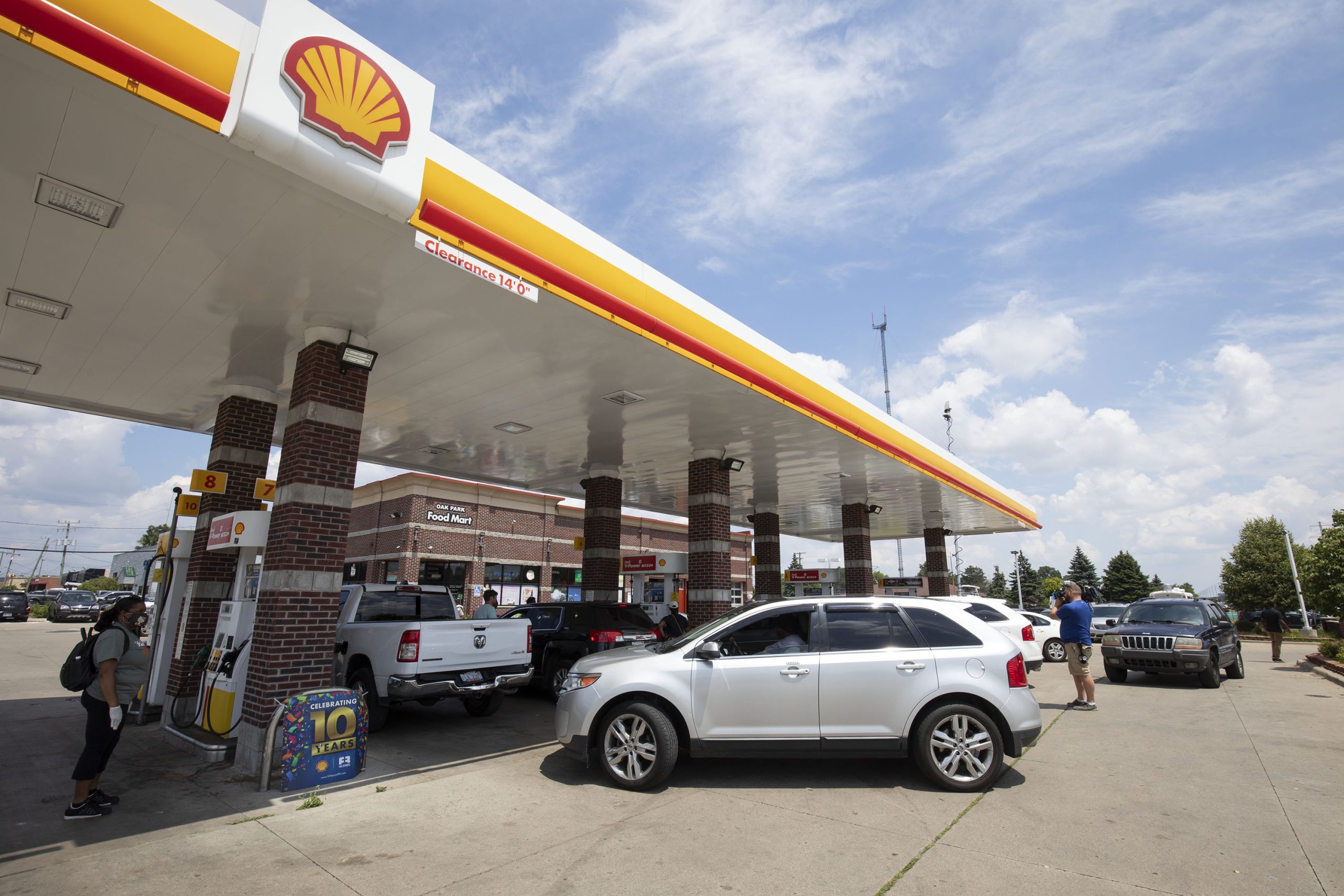Drivers in several states have been advised to avoid refueling their cars during the day due to air quality concerns.
The National Weather Service (NWS) issued several air quality advisories for Friday due to high levels of ozone, which at ground level is a harmful pollutant.
People in certain parts of California were told to “delay trips to the gas station” until the evening, according to alerts from the NWS.
The advice applies to various areas in and around Los Angeles County as well as some cities in Imperial County near the border with Mexico.
Drivers are also advised to avoid refueling their cars until after 8 p.m in several parts of Indiana, particularly the southeastern areas, as well as Indianapolis, and Ohio, including downtown Columbus.
People in certain parts of southeastern Michigan, including Detroit, are also advised to avoid refueling their cars.
Residents in some areas are also advised to limit the use of gasoline powered lawn and garden equipment until the evening, to conserve electricity and set air conditioners at higher temperatures, and to delay the use of household chemicals until the evening, per the advisories for Friday.
People in these areas are also advised to walk, bike, carpool or use public transportation where possible and to try to combine errands to save multiple trips.
Bill Pugliano/Getty Images
Newsweek reached out to the NWS via email outside of regular working hours for further clarification.
The advisories have been made due to levels of ozone in the regions possibly approaching or exceeding unhealthy standards, which can result in poor air quality levels.
Several states around the country have faced worsening air quality due to rising summer temperatures.
High ozone levels typically occur on hot, sunny days, as ground-level ozone forms when pollutants emitted by vehicles, industrial facilities, and other sources react in the presence of sunlight.
High levels could be unhealthy for sensitive groups, such as children, older adults, and people with asthma or chronic obstructive pulmonary disease.
They can cause respiratory health problems such as difficulty breathing, asthma attacks and lung damage, according to the agency.
“Ozone is complex and arises from many sources. Hot summer weather is definitely a contributor in that it sets up the conditions for ozone formation,” Steven Brown, program leader for the Chemical Science Laboratory’s Tropospheric Chemistry program, which is part of the National Oceanic and Atmospheric Administration, previously told Newsweek.
The NWS pointed people to a website that allows users to input their ZIP codes and see live air quality levels for their areas.
Uncommon Knowledge
Newsweek is committed to challenging conventional wisdom and finding connections in the search for common ground.
Newsweek is committed to challenging conventional wisdom and finding connections in the search for common ground.
